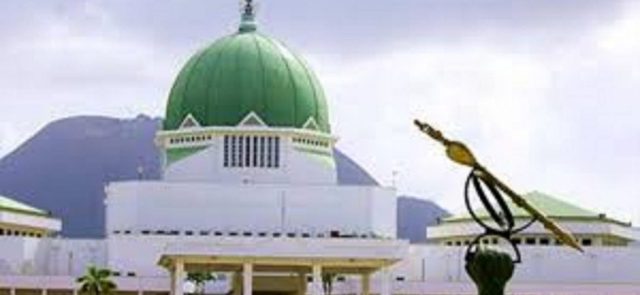The National Assembly on Saturday disclosed that it would transmit the report of the ongoing constitution review to the 36 state assemblies before December 2025, in line with its design and timetable.
However, the parliament urged all stakeholders with specific demands to actively engage and lobby their respective state assemblies, noting that the National Assembly “cannot successfully review the Constitution of the Federal Republic of Nigeria, 1999 (as amended) without their approval.”
Leader of the Senate and Zonal Chairman of the Senate Committee on the Review of the 1999 Constitution, Senator Opeyemi Bamidele, made this disclosure on Saturday at the conclusion of the two-day zonal public hearing on the review held at Water Crest Hotel, Ikeja, Lagos State.
Since the beginning of constitutional amendment efforts in the Fourth Republic in 1999, key issues such as devolution of powers, local government autonomy, creation of additional states, and establishment of state police have dominated discussions at zonal public hearings.
Among those present at Saturday’s hearing were Deputy Minority Leader of the Senate, Senator Olarere Oyewunmi; Chairperson, Senate Committee on Humanitarian Affairs and Poverty Reduction, Dr. Oluranti Adebule; Chairperson, Senate Committee on Health, Senator Ipalibo Banigo; Chairman, Senate Committee on Public Procurement, Senator Olajide Ipinsangba; and Chairman, Senate Committee on Judiciary, Human Rights and Legal Matters, Senator Adeniyi Adegbomire, among others.
Addressing stakeholders, Bamidele reiterated that the constitution review report would be sent to all State Houses of Assembly before December 2025, consistent with the review timetable.
According to him, “We have completed the public hearing. We are now returning to Abuja to prepare our report. Part of our timetable is to issue final notifications before the end of the year and transmit our report to all state assemblies. This will conclude the process of the constitution review.”
He emphasized that the review process “is not a jamboree, contrary to some dissenting views across the federation. Rather, it is aimed at making consequential reforms that can ensure our collective prosperity, a more efficient governance structure, and sustainable development.”
Bamidele warned that the National Assembly would be handicapped in completing the review if the proposed amendments were not approved by two-thirds of the state assemblies.
He therefore challenged all stakeholders to begin lobbying their state assemblies and legislators to meet the constitutional threshold for amending the 1999 Constitution
While promising that the National Assembly would process all the proposals received and transmit them to the state assemblies, Bamidele stressed that stakeholders must take the lead in lobbying the states if the proposed amendments are to be adopted.
“There is nothing the National Assembly can do without a two-thirds approval of all proposals by the state legislatures. All stakeholders must engage with their lawmakers at the state level. We must appreciate the role of the state assemblies in ensuring these proposals become law,” he said.
“State assemblies are part of the process. We have spent the past 48 hours in Lagos State listening to people’s aspirations, concerns, and expectations. All six states in the geo-political zone were represented by their elected officials. We are in this process together.
“The state assemblies are already anticipating the constitution review report from the National Assembly. They are not just waiting; they are part of the review process. I do not foresee any problem from the state assemblies.
“Therefore, we advise all stakeholders with special interests to extend their advocacy to the state assemblies. It is not just about the elected representatives, but about ensuring that decisions reflect the will of their constituents.”
Also speaking at the hearing, Chairman of the Conference of Speakers of State Legislatures of Nigeria and Speaker of the Oyo State House of Assembly, Rt. Hon. Debo Ogundoyin, called for greater devolution of powers to subnational governments to fast-track national development.
Represented by Deputy Speaker Abiodun Fadeyi, Ogundoyin argued that both federal and state governments should have legislative authority over issues such as solid minerals, labour, drugs and poisons, telecommunications, and stamp duty.
He said, “Devolution of powers is central to this constitutional amendment. Key items should be moved from the Exclusive Legislative List to the Concurrent Legislative List for the benefit of all. For instance, the removal of electricity from the Exclusive List has already transf guyormed power delivery in many states through independent power initiatives.”
Ogundoyin also supported the establishment of state police, citing benefits such as improved local security, community policing, reduced federal burden, increased accountability, and job creation.
He added, “On state police, stakeholders will agree that the debate has gained momentum from both supporters and critics. However, the potential benefits far outweigh the challenges.
“The amendment must clearly define the powers, responsibilities, and limits of state police, establish oversight mechanisms to prevent abuse, and create a framework for federal and state police to work collaboratively for effective coordination and balance of power.”







